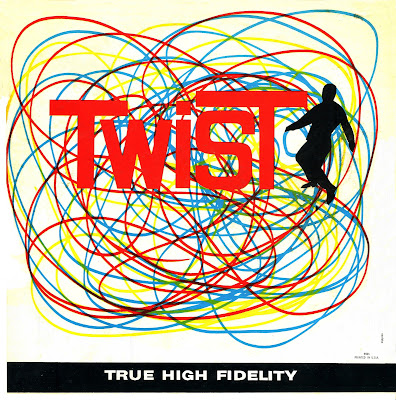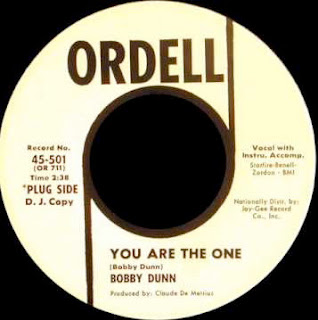Twenty-five 78 rips from my own collection, all made by me (with the help of VinylStudio and MAGIX), and all posted at my YouTube Channel, Shellac City. As the name suggests, the emphasis is on shellac, though I've cheated two or three times with vinyl posts. Occasionally, it's hard to remain locked in a format...
And I decided to go the mp3 route this share, since including the YouTube videos in a post gets cumbersome and limits the playlist, despite the aesthetically pleasing look.
Today's selections, which represent about 1/3rd of my YouTube postings, cover the years 1905-1937, though not comprehensively--the two 1937 sides are outliers, really. A more accurate span description would be 1905-1925-ish. "1925-ish" was a good year, I've read.
First, my thanks to Steve for his generous gift of a box of 78s--selections 6-12 are Steve gifts, and they came out quite well, I think. The Pryor sides are excellent, as I expected, though I was mildly surprised by the sheer excellence of the xylophone and cornet solos, both of which are terrific examples of their era (1905 and 1906), recording-wise. Moral: Never underestimate early 20th century solo sides. Thanks, Steve!
The rest are from my overflowing shellac stash, which coexists (mainly) in this room with my overflowing vinyl collection. If I were to pick highlights (and I will), I'd mention the outstanding 1923 Twelfth Street Rag version by Ted Lewis--a blog repeat, but in better sound, I'm sure. Also, the amazingly vivid 1926 Arthur Pryor William Tell Finale, which everyone knows as the Batman theme. No, wait--Lone Ranger. Sorry. There's the 1918 Wilbur Sweatman "jam tune" (my term), That's Got 'Em, which is another repeat, but in more vivid fidelity. Plus, from Steve's box of 78s, the wonderful American Beauties March and "His Honor the Mayor" Melodies (Arthur Pryor, 1906 and 1907), the latter title getting a rave review at YT. And... Alfredo Brito and His Sibony Orchestra, from 1931, with (what else?) Ernesto Lecuona's Siboney. And please note the Bo Diddley beat on the claves. And the vivid early-electric-era sound continues with the 1925 The Whistler and His Dog, which has Arthur Pryor's Band (in microphone fidelity, this time) performing Pryor's own novelty number, and on the Columbia X suffix, Banda Espanola and Banda Columbia sides from 1925: Dolores (by Emil The Skaters Waldteufel), and La Nueva Higuerita, which translates to "The New Higuerita," with "higuerita" the diminutive form of "fig tree." And some pre-hi-fi high fidelity sound, courtesy of the Massed Military Bands (whoever they were) on Parlophone (Entry of the Gladiators, 1937), the flip of which I'll post next time. The delightful Neil Moret (aka Charles N. Daniels) Silver Heels (Columbia Band, 1905) is making probably its second or third appearance here, but this rip is my best to date. My goal with all of the early-1900s selections is to bring the sound up front, and not leave it someplace in the back row. That takes some post-rip tweaking, but it also requires the right bass turnover freq to start with. Which is a little tricky, since acoustical recordings don't technically have a bass turnover freq--not in the literal sense. But in the de facto sense, yes.
When Charles A. Prince switched over to a dance band format, he did so brilliantly, as demonstrated by his 1920 Oriental Stars, one of my all-time favorite early dance sides. And I think I more than adequately captured the percussion effects, of which there are plenty. Our sole close-harmony side, The Reube Quartet (usually spelled "Rube"), has the Peerless Quartet at its/their 1915 best, though that's a bit redundant--they were always at their best. The Waring's Pennsylvanians 1924 masterpiece Oh, Baby! Don't Say No, Say Maybe (a typically ingenious Walter Donaldson title) answers the question, "Did popular dance bands of the 1920s ever record 'real' jazz?' quite solidly in the affirmative. I wouldn't know what else to call it, though the typical approach to early jazz by jazz scholars is to pronounce nearly everything as not-jazz. Less work, I guess. ("We'll just toss this in the Not-Jazz pile.")
Sorry for the missing second or two near the close of the Louisiana Five's Slow and Easy (culprit: a deep gouge, the loud sound of which I smoothly edited out), and for Nat Shilkret fans, we have Nat leading the usual expert studio jazz guys in Chloe, from 1927. Great side, but I'll never be able to listen to any version of Chloe without thinking of Spike Jones' devastating parody. I keep expecting to hear Red Ingle saying, "Hello? Oh, you don't say!" Etc.
Oh, and the full title of Paul Lincke's Amina Serenade is Amina: Egyptian Serenade. I would sworn it was a Spanish dance, as nothing about it suggests "Egyptian." Not to my 2022 ears. But a nice number, regardless, and the usual marvelous Pryor performance.
We're going to Shellac City...
DOWNLOAD: Shellac City, Part 2
12th Street Rag--Ted Lewis and His Band, 1923
Chloe (Song of the Swamp)--All Star Orch. (Dir. Nat Shilkret), V: Franklyn Baur, 1927
That's Got 'Em (Sweatman)--Wilbur Sweatman's Orig. Jazz Band, 1919
William Tell--Overture--"Finale"--Arthur Pryor's Band, 1926
Carioca--Rumba--RKO Studio Orchestra, Dir. Max Steiner, 1934
American Beauties March--Same, 1906
"His Honor the Mayor" Melodies--Same, 1907
Gesundheit Waltz--Same, 1907
Italian Riflemen March--Same, 1908
Long Long Ago--Air and Variations--Peter Lewin, Xylophone with Orchestra, 1905
Pretty Peggy--W.S. Mygrant, Cornet Solo with Orch., 1906
Amina--Serenade--Arthur Pryor's Band, 1912
Siboney--Rumba--Alfredo Brito and His Siboney Orch., 1931
Raftero--Nat Finston and Paramount Studio Orch., RR on piano, 1934
Silver Heels--March and Two-step--Columbia Band, 1905
The Whistler and His Dog (Pryor)--Arhtur Pryor's Band, Whistling: Margaret McKee, Billy Murray (!), 1925
Dolores--Banda Espanola, 1925
La Nueva Higuerita--Band Columbia, 1925
Oh, Baby! (Don't Say No, Say Maybe)--Waring's Pennsylvanians, 1924
Oriental Stars--One-step--Prince's Dance Orch., 1920
The Reube Quarette--Peerless Quartette, 1915
Slow and Easy--Louisiana Five Jazz Orchestra, 1919
Entry of the Gladiators--March--Massed Military Bands, 1937
Hot Time in the Old Town--Medley March--Victor Military Band, 1917
Taxi--One-step--Waldorf-Astoria Dance Orch., Dir. Joseph Knecht, V: Irving Kaufman, 1919
Lee

















